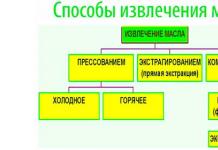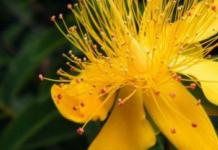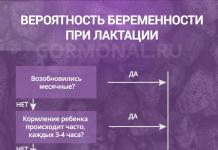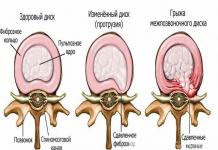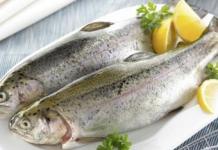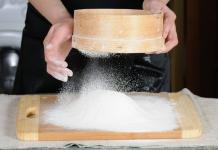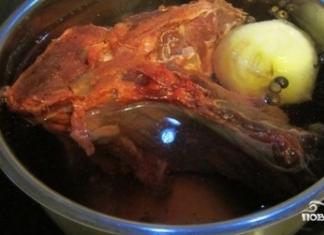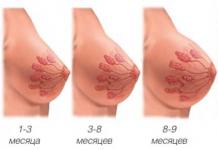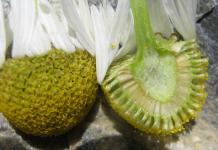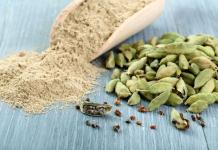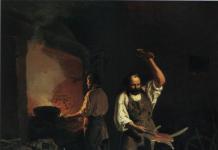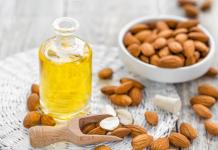Lesson topic: Difficult words. Connecting vowels o and e in compound words.
Goals: know the ways of forming compound words, the condition for choosing connecting vowels O and E; develop spelling vigilance, communication skills, interest in the subject; to cultivate a sense of friendship, collectivism, the ability to conduct an educational dialogue
Equipment: presentation , cards.
During the classes:
I. Organizational moment
opening speech
The children, before starting the lesson, looked at each other and smiled.
I wish you all good luck so that our lesson is kind, bright
II. Knowledge update
A task: Set students up to perceive new material, repeat the material on how words are formed.
Exercise: Read the poem "Merry Poems" and tell how words are formed in Russian.
How words grow
Somehow many years ago
Planted strange garden.
There was no fruit garden -
He was only a word.
This word is the root word
It soon began to grow
And brought us fruit -
There are many new words.
Here from garden
To you seedling.
Here's another landings beside.
But gardener.
With him gardener goes.
Very interesting
walk in garden verbal.
(A. E.Izmailoin)
III Working on a new theme .
1. Video "Complex words in Russian"
2. Determining the topic of the lesson. Recording in the notebook the number and topic of the lesson Compound words. Connecting vowels o and e in compound words.
- What is the topic of our lesson?
The words pedestrian, electric locomotive, steamboat, plane are complex words. They are formed:
adding whole words: boarding school;
stems of words with a connecting vowel: steamer;
stem parts of a word with a whole word: kindergarten;
abbreviated basics: Theater of the Young Spectator - Youth Theater.
In compound words, connective about is written after hard consonants, and the connective e- after soft consonants, hissing and c.
For example: an oil pipeline, an airplane, a birder.
We found out which words are called complex, we learned that two connecting vowels O and E are involved in the formation of compound words.
There is also the letter I, acting in this role, but with it we will meet when we deal with numerals, for example: six-year-olds, so we stayed O and E. They will be the guests of our lesson today.
(The words are written on the blackboard
climber ← top, climb
Oil pipeline ← oil, conduct
Pedestrian ← walking, walking
Vegetable cutter ← vegetables, cut
Poultry farm ← poultry, factory
3. Preparation for the perception of the topic. Task: solve riddles
Boldly floats in the sky,
Overtaking birds in flight.
The man controls it.
What? (AIRPLANE)
Courageously sailing on the waves
Without slowing down.
Only the car is buzzing is important
What? (STEAMBOAT)
Every day comes out in the morning
On your daily trip.
Must know all the rules
On the roads ... (PESTRIATOR)
What is this way of forming words called?
- Guess what these words might be called?
4. Work with the textbook Exercise 5 Page 75 From each pair of words, make a compound word, write down, underline the connecting vowel o or e. Explain your choice. 5.Task: Choose antonyms for these words, explain the choice of a connecting vowel.
A lazy student is a hardworking student.
A serious young man is frivolous.
Monotonous movement - diverse.
Hostile attitude is friendly.
6. Physical education
7. Task:
Match the words in the left column with the correct words from the right column. Write down a compound word, indicating graphically the choice of a connecting vowel.
| right | conduct |
|
8. Crossword
(Each student receives a card with a crossword puzzle and fills in independently).
1. Garden specialist.
2. Locomotive with a steam engine.
3. Channel for the exit of smoke from the pipe.
4. Russian folk dance game.
5. Forest felled by a storm.
6. Unscheduled, spontaneous accomplishment of some business, work.
7. Firearms.
9. Vocabulary work
A MANAGER is a specialist who is engaged in the organization of production or commercial activities, the organization of foreign trade operations; conducts commercial negotiations.
10. The game "Purchasing Manager"
Imagine that you are a purchasing manager. Make a list of vehicles whose names would contain the connecting vowels o - e.
Imagine that you are a manager at the labor exchange. Make a list of professions and occupations necessary for our aul, district, in which there would be connecting vowels e-o
11. "Silent dictation." Write titles for pictures
12. Creative work.
Task: replace the words with one compound word. (Perform orally).
| (tea party) |
||
| help mutually | (mutual assistance) |
|
| love work | (industriousness) |
|
| people of the same family | (namesake) |
|
| one who walks | (a pedestrian) |
|
| senior class | (high school student) |
13. Work with cards. check yourself
|
|
IV . Fixing the topic
operational control.
Test "True and False Statements".
I make statements, if you agree with it - clap your hands, if you disagree - stomp your feet.
1. Compound words are all long words.
2. If the first root ends in a hard consonant, then we write the connecting vowel -О-.
3. After the letters - F - and - W - it is written - O-.
4. Words that have 2 roots are called complex.
5. In the words gardener, diver - a connecting vowel -О-.
6. If the first root ends in a soft consonant, then we write the connecting vowel -E-.)
VI. Summarizing.
Grading.
Homework: Compose riddles in which riddles are compound words
When connecting the stems of two or more words into one compound word, as well as when forming compound words with components of an international nature, a connecting vowel is used, which is transmitted in writing by letters about and e .
The connecting vowel is transmitted in writing after solid paired consonants by the letter about , and after soft paired consonants, hissing, c and j- letter e , for example: soundabout director, worldabout view, senabout braid, workabout giver, movieabout teka, dictabout background, Moscowabout retsky, agrabout complex, oneabout one-time, ninetyabout summer, stabout ruble, waterabout repulsive, selfabout ignite; pestilencee swimmer, anciente RRussian, ardore sos, totale available, thousande summer, freshe painted, mousee dexterity, sheepe vodstvo, chae drinking(cf. tea); dirte watersabout clinic, oilabout cheeseabout boiled .
Wed formations with a soft and hard consonant before connecting vowels, transmitted respectively by letters e and about : bloode nose and bloodabout leak, cone leadership and conabout steal, fare aim and rangeabout vigilant, songe creativity and songabout singing, woole processing and woolabout spinning, stonee crusher and stoneabout lomnya.
Letter about also written after a vowel and or e in a number of compound words with the first part - the basis of words in -and I or at -her , -her , for example: bacteriaabout carrier(cf. bacterium), historyabout graphy (story), religionsabout conducting (religion), chemistryabout therapy (chemistry), barelyabout anointing and barelyabout consecration (oil), tracheabout bronchitis (trachea), museabout logic (museum), but: musee conducting, musee fiction.
Instead of connecting vowels about and e in some categories of compound words, vowels are written that coincide with case and other endings of words, the stems of which are contained in the previous part of the word:
- I - in words with the first parts self: selfish, selfish(but in sebe price and sebe dominating- letter e ); time, for example: pastime, time reckoning, time measuring; name, for example: naming, naming(social philosophical trend); seed, for example: cotyledon, ovule, ovule, ejaculation, seminal receptacle, seminal purifier(but cf. nomenology, seed production, seed storage, and also - with the bases of other words on -mya - standard-bearer, flame-like, flame arrester);
- a - in words insane, crazy, in words with first parts forty, one and a half, one and a half hundred, for example: fortieth, forty-candle, forty-hour(but cf. centipede, magpie); one and a half ton, one and a half year old, one and a half hundred years old(but in words with the first parts ninety and one hundred spelled about , see § 65);
- and - in words with the first parts containing the bases of numerals from five before twenty, as well as thirty, fifty etc., for example: decade, seven months, thirty volumes, sixtieth anniversary; in terms of additions with the basis of the numeral three: shamrock, triune, trinity, trinity(but cf. triangular, tripod etc.); in words with first parts coinciding with the forms of the imperative mood of the verb, for example: daredevil, flirtatious, gouge, tumbleweed(for a list of such words, see § 119, paragraph 4); in compound possessive adjectives like Uncle Stepin, Aunt Valin;
- s - in the same type of adjectives women Dusin, Anna Petrovnin(see § 166).
At the end of the first parts of compound words are also written: letters a and and - in some rows of compound words with the first parts of an international character: air (airbase, aircraft carrier, aircraft carrier), aqua (aquanaut, aquatics), mega (megaton, megawatt, megaproject), media (media company, media holding), maxi (maxi skirt), midi (midi dress), Milli (millimeter, milligram), mini (mini tournament), centi (centimeter), deci (decimeter), poly (multivitamins, polytechnic), quasi (quasi-radiation, quasi-scientific); letter and - in part of words with second parts -metry (planimetry, dosimetry; but cf. seismometry, spectrometry), -fiction and -fit (electrification, electrify, gasification, intensification, russification; but cf. heating, radio); in the names of states, territories with the second part -mill (Uzbekistan, Turkmenistan, Kurdistan); in words centrifuge, agriculture(but cf. agriculture with a different meaning).

Rice. 2. Nikolai Dobronravov ()
Compound words call people by profession.
commander- leads the regiments, the roots of the regiment-, water-,
fabulist- writes fables, roots of fables, piss,
beekeeper- breeds bees, bee roots -, water -,
plumber- conducts water, roots of water-, water-, prefix pro-,
steelmaker- cooks steel, roots steel-, var-,
birder- catches birds, bird roots-, catch-, the first root ends in c, we write e.
Listen to the text, determine how many difficult words met.
Moscow was founded by Prince Yuri Dolgoruky. Moscow was originally a wooden fortress, fenced with a palisade of logs. The oak walls of the Kremlin were replaced by white stone ones. It was then that Moscow received a name for all time - white stone. And also golden-domed, with golden heads, domes of temples. Chistoprudny Boulevard is one of the old streets in the center of Moscow.
Dolgoruky- long arms, roots long-, arms-,
stockade- a fence of closely driven stakes, the roots are part-, count-,
white stone- built of white stone, the roots are white, stone,
golden-domed- with golden heads, roots of gold-, heads-,
Chistoprudny- clean ponds, clean roots, pond-.
This is how the transcriptions of compound words were made:
In place of the letters of the connecting vowels O, E, the orthogram: a letter in the place of an unstressed vowel sound.
Why is it called a bird? The redstart is so named for its tail. He is red in color and trembles all the time. Therefore, it seems that the tail flashes with a spark, as if on fire. (See Fig.3)

Rice. 3. Redstart ()
Redfin fish is very beautiful. Her back is green, on the sides are golden scales with a brown border on the sides. Orange eyes, yellow lips. The fish got its nickname for the color of the fins. (According to N. Osipov) (see Fig. 4)

Rice. 4. Rudd ()
A blade of grass grows, straight, strong, and at the end of its green brush sticks up. This is what a foxtail looks like. Of course, such a tail is too small even for a fox, but it still looks like a tail. (See Fig.5)

Rice. 5. Foxtail ()
Water strider - this is the name of an insect that quickly runs through the water, as if it wants to measure the distance. (See Fig.6)

Rice. 6. Water strider ()
A compound word consisting of two roots mountains- and a tail-. Root words: burn, ponytail.
Compound word, consists of two roots: red- and per-. Root words: red, feathers.
Fox roots, tail. Related words: fox, ponytail.
Roots of water-, measure-. Water, measure.
In the lesson, you learned that words that have two roots are called compound words. Most often, the roots in compound words connect the vowel letters o or e. These letters are called connecting vowel letters. The letter o is written after hard consonants, e - after soft consonants and unpaired hard ones: w, w, c. For example, couch potato, pedestrian, birder.
- M.S.Soloveichik, N.S. Kuzmenko "To the secrets of our language" Russian language: Textbook. Grade 3: in 2 parts. Smolensk: Association XXI century, 2010.
- M.S. Soloveichik, N.S. Kuzmenko “To the secrets of our language” Russian language: Workbook. Grade 3: in 3 parts. Smolensk: Association XXI century, 2010.
- TV Koreshkova Test tasks in the Russian language. Grade 3: in 2 parts. - Smolensk: Association XXI century, 2011.
- T. V. Koreshkova Practice! Notebook for independent work in Russian for grade 3: in 2 parts. - Smolensk: Association XXI century, 2011.
- L.V. Mashevskaya, L.V. Danbitskaya Creative tasks in the Russian language. - St. Petersburg: KARO, 2003
- G.T. Dyachkova Olympiad tasks in Russian. 3-4 classes. - Volgograd: Teacher, 2008
- Rus.1september.ru ().
- Gramma.ru ().
- 5class.net().
- School-collection.edu.ru ().
- Oldskola1.narod.ru ().
- Solve spelling problems.
Steamy, leaf_pad, porridge_var, cheese_ezhka, one_root, dishwashing, white_mane, scythe_paw, self_made, earth_quake.
- Find difficult words, show their structure.
... Dragonflies fly and dance,
Merry lead a round dance.
A. Tolstoy
People have known for a long time
Fly agaric is inedible.
V. Zhulzhin
- Read an excerpt from V. Astafiev's story. Find difficult words, give a description of their meaning and highlight the roots.
Mukhtar was the spitting image of Trezor in color and article, but differed from him in character. If Trezor is cunning and lazy, then his brother was hardworking, strict, angry, and therefore sat on a chain. And it was bitter for him, free, swift, swift, such a life.
As auxiliary morphemes, connecting vowels (interfixes) o/e are distinguished only in the derived stems of compound words. This property sharply delimits them from suffixes and prefixes, which can be in both complex and simple words. Unlike suffixes and prefixes, which can be both derivational and formative affixes, the connecting vowels o/e are specifically derivational morphemes. Unlike suffixes and prefixes, which always (if they are regular) have a certain lexical and grammatical meaning, the connecting vowels o! In their semantics (completely independent, in contrast to the meaning of suffixes and prefixes from forming stems), connecting vowels o / e are similar to connecting unions.
In some cases, the connecting vowels o / e acquire the character of semantically empty sounds that appear in the word only
for phonetic reasons. So, if in the words reinforced concrete, fisherman, dried fruits the connecting vowel o is a connective morpheme, due to certain rules of word formation (the addition of full stems and words is carried out, as a rule, with the help of connecting vowels), then in the word technoruk it, from a word-formation point of view, represents is an illegal phenomenon (because the addition of abbreviated stems is carried out without the mediation of connecting vowels o / e; cf .: political instructor, military instructor, physical instructor) and does not matter. The sound o here is only a means of avoiding the unpronounceable confluence of consonants (technologist - technologist).
Connecting vowels o / e most often act as phonetically determined options: if the first basis of addition ends in a paired solid consonant, then o acts as a connecting vowel (mortar mixer, water carrier, etc.); if the first base of the addition ends in a soft consonant, in a hard hissing or c, then the connecting vowel e is used (navigator, pedestrian, sheep breeder, etc.). The appearance of e after the hard sibilant and ts is historically justified: the sibilant zh, sh and ts were soft in the Old Russian language and hardened only in the 14th-15th centuries, when the noted word-formation rule for the use of o/e was already a strong tradition.
However, in a number of compound words, the first stem of which ends in a soft consonant n, r, t or v, in place of the expected e there is an “illegal” o: hitching post, trapper, bestial, stonecutter, quarry, ambition, lust for power, carnivore, carnivorous, blood circulation, bloodsucker, bloodthirsty, chant, fabulist, etc. Next to such words, there are also words where, after the same first stem, the connecting vowel e naturally appears: horse breeder, stud farm, stone processing, stone-cutting, bone-crushing, blood, song-making, etc. e. All these words are much later formations than the words related to them in the first stem with the connecting vowel o.
The undivided dominance of the word-formation model with o/e in the production of compound words is evidenced primarily by the multiplicity and variety of types of additions with o/e compared with additions without a connecting vowel. Almost all new formations of a complex nature that have appeared recently (both among nouns and among adjectives; in the sphere of the verb, the method of addition is not observed) are words with connecting vowels o/e.
Connecting vowels o / e must be clearly distinguished from phenomena that outwardly resemble them. So, the words little-used, wild-growing, following, etc., arising with the help of the lexical-syntactic method of word formation (see § 31 about it), do not contain connecting vowels: o / e in them are adverbial suffixes (o - word-forming, e - shaping). In the words automobile plant, bicycle race, autoregulator, weather report o is the same integral part of the abbreviated bases (automobile, bicycle, automatic, meteorological) as the consonants f, t, p in the words trade union, party activist, salary. Phonetically, the connecting vowels o/e are characterized by unstressedness. In compound words, stress is always observed on root morphemes (vacuum cleaner, plumbing, frost-resistant, mechanical engineering, etc.).
Connecting vowels o/e as significant parts of a word can, of course, be singled out only if the analyzed word is recognized as a complex one. If the word has gone through the process of simplification or re-decomposition, then there are no connective morphemes in it. Thus, the connecting vowels in the words pandemonium (the Babylonian pandemonium arose by means of an ellipsis on the basis of phraseological turnover), porcupine (adding wild and image), horizons (adding circle and zor - from seeing), psychologist, library, etc. There is no connecting vowel in some compound words that have experienced the process of dropping one of the syllables, for example: tabakur, standard-bearer (originally tabakokur, standard-bearer).
Pedagogical tasks: create conditions for realizing the goal of learning to form and write complex words.
Planned results of education:
Educational: learn to form compound words using connecting vowels oh e, will be able to extract information from different sources.
Communicative: organize the conditions for communication when working in pairs, the ability to build a statement that is understandable to the audience, ask clarifying questions, formulate simple conclusions, use intonational expressiveness.
Personal: use learned methods of work to solve educational problems; exercise self-control in the performance of written assignments; realize the need for self-improvement; express a desire to master new actions, achieve positive results of labor, and also strive to give people warmth and care.
Teaching aids: textbook, computer, presentation, test, cards, a set of colored pencils, a flower-seven-color drawing.
During the classes
I. Greeting guests. Check readiness for the lesson.
We have guests at the lesson, greet them.
Emotional attitude to the lesson (dialogue between teacher and students).
Now check it out buddy
Are you ready to start the lesson?
- Is everything in place?
- Is everything okay?
- A pen and a notebook?
- Arms? (In place)
- Legs? (In place)
- Elbows? (At the edge)
- Back? (Straight)
Draw a green triangle in the margins if you want to understand everything in the lesson, work well, think. If in doubt, draw a yellow triangle. And at the end of the lesson, you will correlate your goals at the beginning of the lesson with what you will achieve at the end of the lesson (green triangle - everything worked out, yellow - I will try to be attentive, red - I haven’t quite mastered the material yet)
II. Updating of basic knowledge.
1. A minute of calligraphy. Game "Danetka"
2. “I conceived a natural phenomenon” On the computer, a slide with illustrations of natural phenomena (hoarfrost, rain, rainbow, snowfall, lightning).
You ask me questions, I can only answer Yes and no.
I thought of a natural phenomenon.
Student. Is it a feminine noun?
Student. Is it a masculine noun?
Student. Does he water everything?
Student. Are the trees beautiful?
Student. This is frost.
Look up the exact definition of the word in the dictionary frost (optional one student). (A thin layer of snow formed by evaporation on a cooling surface)
Which letter is missing? ( E , it has no sound)
Write beautifully all the other letters. (And n y)
Who can find a difficult word? (Snowfall)
Let's write out from it all the letters that represent consonant sounds.
Why do we need this stage of the lesson?
(We learned to extract information using questions, repeated the spelling of some letters, clarified that the letter e has no sound, repeated letters of consonants)
3. The game “Be attentive”
Arrange the words in 3 columns according to the types of spelling. Complete the words.
Unpronounceable…. Paired ……. Unstressed ... (on the board)
(Rare, honest, water, holiday, happy, wear, Volgograd)
Standard check. (Slide 3)
Who has the word Volgograd recorded 2 times? Why? (This is a compound word and 2 spellings)
What two words does this word consist of? (city, Volga)
Label the roots.
How do we feel about the city? (With pride in the hero city we live in)
Why this stage of the lesson?
(To repeat what we already know and think about something new)
“5” - no errors
“4” - 1, 2 mistakes, more than 2 mistakes - you need to repeat the spelling rules
What role does the root play in words? (The general meaning of all cognate words is fundamentally concluded)
Is it enough to take two roots to make a word? (Not)
What needs to be done for this? (connect two roots)
How to do it? Problem?
Think about what words can still form a compound word? (water carrier)
How did you connect the 2 roots? (using the letter about)
III. Setting the goal of the lesson
What do you think we will work on in the lesson? (We will form complex words and write the connecting vowel correctly)
It remains to be seen when O, and when E.
IV. Actualization of new knowledge, work on new material
1. Formation and recording of compound words:
Fall, leaves (leaf fall) (slide 4) and admire this natural phenomenon.
What do we know about the forest ecosystem? (Closed a circleaboutgate substances)
Water, fall (waterfall) illustration. (Slides 5, 6, 7, 8)
A person who breeds flowers. (Florist)
Cooking porridge? (Cook)
What connecting vowels did you use? (Oh e)
Work with the textbook. Exercise 128 p.108 with commenting at the blackboard
first about cool (i.e. very good, high quality today in our country is Quality Day)
Ice about count
ardor e SOS
flies about pestilence
Forest about rub
Vegetable e cutting
What is this type of work for? (Exercised in the formation and writing of complex words)
When a connecting vowel is written in compound words - e , a when -about?
(O after hard consonants, E - after soft consonants, hissing and C)
Tell the algorithm how you will work.
2. Work in pairs (exercise 131)
Form complex words, add your words airplane, samovar, scooter, pride, Samodelkin. (Self-shooter, dump truck, impostor)
Which couple will do it - raise your hands with a hut.
Standard self-test. (Slide 9, 10)
Explain the word self-love using a dictionary. (Self-esteem, combined with a jealous attitude towards the opinion of others about oneself (painful pride, to spare someone's pride))
3. Physical Minute. (Slide 11, 12)
4. Independent work on cards.
Form and write down new words, underline the connecting vowel.
I option
ice felling
house hostess
milk move
II option
meat wire
everywhere combine
heat mower
Self-check (slide 13). I will check your notebooks and cards, and if you have assessed yourself objectively, I will put marks in the journal.
Now answer the test questions. The correct answer corresponds to the letter.
1) Words that have two roots are called:
m) simple; c) complex.
2) In compound words there are letters of connecting vowels:
p) o, e; d) y, i; p) uh.
3) After the letters of solid consonants, a connecting letter is written:
j) e; a) about; m) y.
4) After the letters of soft consonants, a connecting letter is written:
c) e; on; p) s.
5) Indicate the word in which the letter e is written:
d) himself ... var; i) coffee ... milk; e) bread ... rob.
6) Indicate the word in which the mistake was made:
d) all-terrain vehicle; e) livestock breeder; b) write.
7) What is the difficult word?
l) ran; o) steamship; h) flew.
It turned out the word ... (thank you!)
5. D / z: exercise 132 p. 110.
v. Summarizing. Reflection. Self-assessment by students of activities in the lesson
(Slide 14, 15)
I succeeded …
surprised me
I like it
I rejoiced for
I want give thanks … per …
There is a flower on the board.
What is the name of this flower? (Flower-sem and flower)
Name the roots.
What would you like to ask me? (Why is the connecting vowel and?)
Do we know everything about compound words? (Not)
This means that new discoveries await us at the Russian language lessons.
You said: “I want to thank…”.
Gratitude is a complicated word, it means to give good, kindness. Let's try to do good to everyone.


